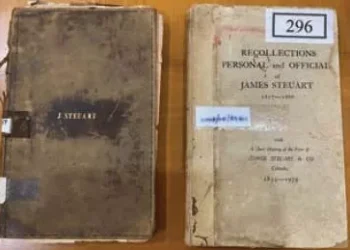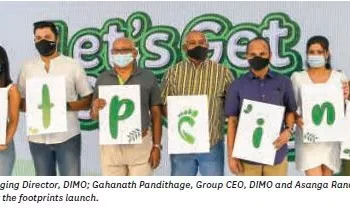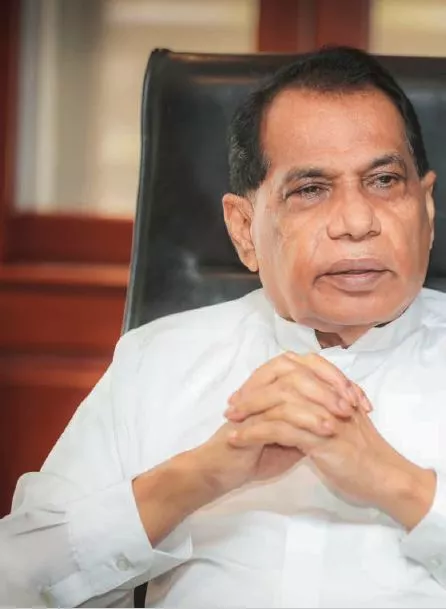
Having had a long history of political affiliation, especially with the Rajapaksa family for over 50 years, Dr Willie Gamage, Governor, Southern Province has served in many roles before assuming office as Governor in which he has big plans to develop the province extensively, targeting all the vital sectors. Dr Willie Gamage has immense experience in working with Prime Minister Mahinda Rajapaksa from the days of his youth. He has been a pillar of strength, quietly but diligently fulfilling his duties. He has never sought the limelight but has worked with great determination. The Governor highlighted the tremendous amount of work carried out by the Southern Provincial Council despite the challenges of the pandemic while he outlined the plans for 2021.
By Udeshi Amarasinghe. Assisted by Jennifer Paldano Goonewardene.
Photography Menaka Aravinda.
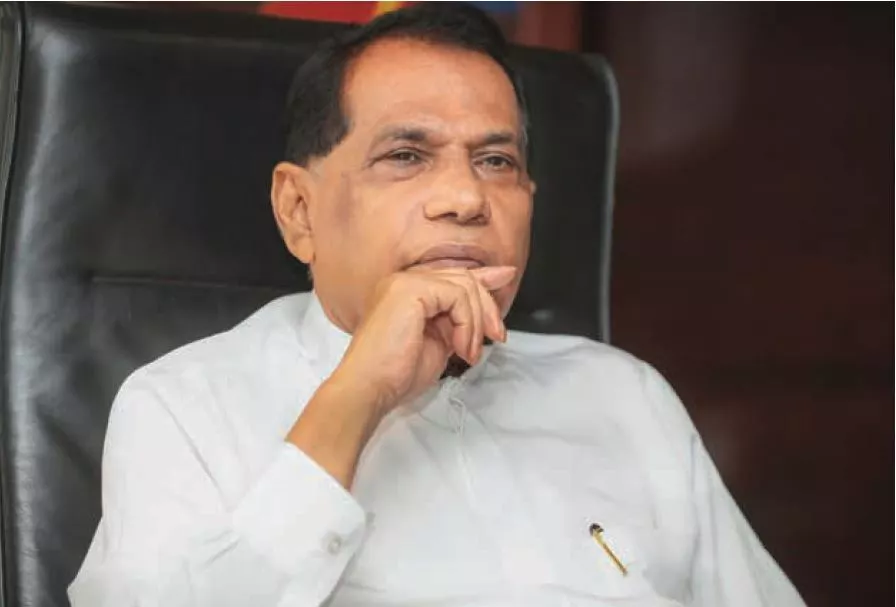
As the Governor of the Southern Province can you tell us the work done so far during your tenure?
I was appointed as the Governor of Southern Province in November 2019. The South is one of the main provinces in the country for various reasons such as economically, socially and politically. Whilst the economic and social importance is well known to the public, the political importance is highlighted mainly due to the President, Prime Minister, the Speaker of the Parliament, other politically involved members of the Rajapaksa family and senior political figures who represent the Province. The fact that I too hail from the Southern region, my long-standing career experience of over 50 years in different spheres and in particularly the longstanding relationship with the entire Rajapaksa family and other senior politicians have immensely helped me in carrying out my scope as the Governor of the Southern Province.
Despite the arduous challenges posed by the outbreak of the COVID-19 pandemic, we have been able to successfully implement a considerable number of projects that have been in the pipeline. To begin with, in setting up a COVID-19 coordination center, with the support of the representatives from both public and private sector, I was able to manage the spread of the virus further and bring the negative conditions in the province under control. It was a well-orchestrated initiative executed from the Governor’s Office. Moreover, the countrywide lockdown also prevented the general public from attending to their official duties, accessing our services and voice their grievances where we organized a mobile service in support of the public to seek assistance to their burning issues. In fact, 92 percent of the total 9,296 people who accessed the mobile service had their issues resolved on the same day.
Improving the living standards of people by providing them with better access to services has been a priority for us, as we understand the extensive nature of their needs. Health and Education are two of the main sectors that the Provincial Council has earmarked under development programs. In this regard, we initiated development activities in several selected hospitals and schools with the objective of providing the public with access to better quality services and in comfortable surroundings. Among such initiatives in the health sector was the modernizing of OPDs in Udugama, Gangodagama, Hakmana and Akuressa hospitals. Under this project, we have installed a new digitalized system of maintaining patient records and set up comfortable seating areas. We have also constructed care centers for COVID-19 patients in areas such as Archchi Kanda, Karandeniya, Weligama, Ambalangoda, Kaburugamuwa, Angunukolapalessa and Koggala; these isolation wards have more than 1,507 beds for such patients of which 850 have already been occupied.
Further, I was able to implement the 2019 Southern Province Multipurpose Cooperative Service (MPCS) Pension Act ensuring that MPCS workers can retire in peace with the thought that they have a pension income for the rest of their lives. This pension scheme was established by setting up a fund of 100 million rupees for them. The construction of the Nilwella Bridge was a huge boost to people in Lankagama who were severely inconvenienced in commuting to and from their village in the absence of an accessible road. In addition to the facility provided to the people in Lankagama, it will be an iconic asset to develop the Lankagama and Deniyaya tourist zone. When the Galle Municipal Council and four other local government authorities were challenged with the issue of waste management at Monroviya Watta, I managed to resolve the issue with an investment of 35 million rupees. We also reached out to 179 monastic colleges and 153 Buddhist temples that were not financially sound with financial assistance to carry out religious programs and monastic education actively and consistently.
In a bid to reduce the competition for popular schools in the province and encourage parents to seek entrance to schools that are closer to their homes, the Southern Provincial Council embarked on a project to develop 45 primary schools with latest facilities, such as creating smart classrooms and digital teaching platforms and refurbished classrooms. We have implemented this program in 14 schools already. I have planned to complete the balance 31 schools, but the prevailing unfavorable situation in the country due to the pandemic has compelled me to delay the second phase of this project by few more months in 2021.
All local Government councils come under the purview of the Provincial Council, hence all income generated from taxes, rates, fines and other sources by these local councils, are channeled to them through the Provincial Council. However, in the past for some reason these monies had not been transferred to the respective councils in a just and fair manner. From the total due for councils, approximately 20 to 30 percent had been transferred to the councils which was a major issue that I faced during 2020. Generally, the Southern Provincial Council receives around 150 to 200 million rupees monthly for the local councils, but we were not privy to this income. However, not giving up, I successfully secured 1,500 million rupees in 2020 for the work of the Southern Provincial Council to deliver its services, and implement its development and social activities. This was an average of over 70 percent of their entitlement for the year. I made an electronic fund transfer required for such activities on the 16th of every month. In addition, there are around eight local councils that do not make substantial income, some collecting less than 500,000 rupees from the local councils, which has been a challenge to carry out their work, such as providing fuel for the tractors and tippers to collect garbage. We have been giving these councils 500,000 rupees on a monthly basis to carry out their work, for which I have been commended, as this money allows them to carry out their tasks without interruption. Further, I have requested all councils to allocate 60 percent for development work and 40 percent for recurrent expenditure, if necessary.
The Southern Province’s objectives have been aligned with H E President Gotabaya Rajapaksa’s “Saubaghagyaye Dekma” policy document. In pursuing the President’s objective of ushering in prosperity to the country, the Southern Provincial Council has planned to assist women in selected Grama Sevaka divisions in the province with constructed shop spaces; there are 2,800 Grama Sevaka divisions in the Southern Province. In addition, we introduced the ‘Liya Aruna’ initiative aimed at selfemployed women, and we have already conducted workshops for selected entrepreneurs on business development and technology; we have allocated over 21 million rupees for this task. Former Minister Basil Rajapaksa aims to create more than 200,000 self-employment opportunities in the country, which makes it imperative that every Provincial Council should develop at least 20,000 self-employment opportunities within its administration. We intend to fulfil this task and are already in the process of planning to create Galle – 8,000, Matara – 7,000 and Hambantota – 5,000 employment opportunities under this initiative. We have also proposed in our budget the construction of urban parks in Galle, Matara and Hambantota towns, thereby contributing to the national development process.
Although we had embarked on several development programs, the pandemic had not allowed us to complete them as planned, as we have had to halt the work associated with these projects at several intervals due to lockdowns imposed in certain areas. In 2021, we are focusing on conducting field visits to address the development related issues of rural areas in the Province, such as infrastructure development and creating self-employment opportunities and building small parks.
The Southern Province is very diverse and therefore economically bears an important place. Can you tell us about the work that you do to harness this potential?
The fisheries sector is an important area because we have a coastal area of about 125 kilometers; we have several fisheries harbors and a great deal of work surrounding this sector from Beruwala to Hambantota is being carried out. The fisheries harbors have been established and managed through the central Government. However, the Ministry of Fisheries of the Southern Provincial Council used the 2020 budget allocation to provide fishermen with fishing equipment with the aim of increasing production. In another initiative aimed at sustaining and developing the fishing community, we renovated and built restrooms and community centers for fishermen in the Galle, Matara and Hambantota districts. Tourism is another important economic activity of the province, which, unfortunately has been severely hampered by the pandemic. We are very optimistic that with new plans of the central Government under the direct guidance of H E the President, the tourism sector could be revived in the very near future.
The Galle district is involved in the plantation industry, mostly with the tea and other minor export crop small-holders. Generally they possess from about half an acre to two acres, as family-owned plantations. Handicraft making is also a popular industry in the South, especially mask making, clay production and lacquer based work. While we want to uplift these craftsmen, we also intend to guide these people to diversify into other sectors like greenhouse farming. The Ministry of Agriculture is supporting people with required knowledge to pursue the Government program to uplift the local agriculture sector and the Southern Province is giving a grant of up to 300,000 rupees to those who want to start economic activities. We also hope to increase paddy production by 4,500 metric tons by recultivating paddy lands that have remained uncultivated for nearly ten to 15 years. Strengthening farmers is very important to us, therefore, we have given each farmer a grant of 10,000 rupees, in addition to providing incentives to cultivate potato, manioc, ginger and turmeric. The Provincial Council has encouraged farmers by providing them with seeds and plants free of charge. We also intend to provide farmers with technical know-how on better techniques in cultivation and equipment to boost production.
In addition, we are focused on generating self-employment in aquaculture and ornamental fish breeding. On our part, the Southern Provincial Council’s Ministry of Fisheries has spent 45 million rupees to introduce fingerlings to tanks and reservoirs through fisheries committees and with the assistance of the National Aquatic Development Authority, the Mahaweli Authority and NGOs, an initiative that is in line with our objective to increase the income of people engaged in this industry and create self-employment opportunities while helping people to improve their nutritional standards.
There are 48 garment factories in the Koggala free trade zone and despite the pandemic, some of the factories produced 50-60 million face masks for the export market. Despite the in the prevailing situation, production continues in factories, but one cannot deny the impact of the spread of COVID-19 on daily work.
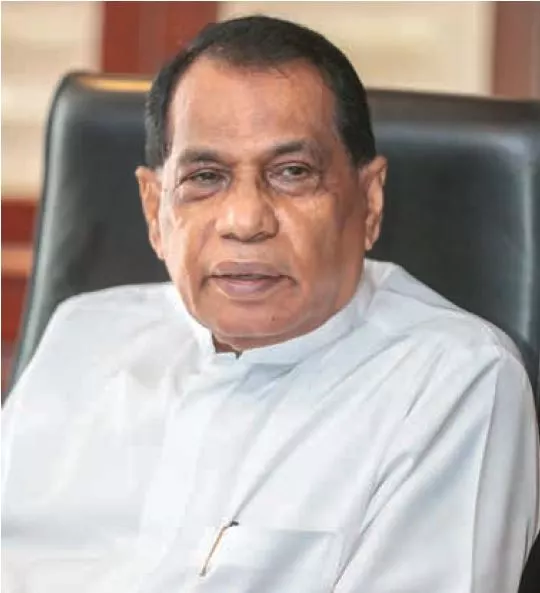
How do you support the livelihoods of the people in the Southern Province?
Being aware of the challenges people are facing in the midst of the pandemic, we have accelerated the availability of financial assistance to the people in the province. We have organized our programs to allow the flow of cash to the grassroots level in some form. People may say that Sri Lankans are very reluctant to take loans, but that notion has changed with the younger generation, who are willing to take that facility. While this notion may be true of rural people, who are most likely to go to their grassroots level organizations and women’s societies to fulfil their capital requirements. The women’s federation in Hambantota is giving small loans of 10,000 to 15,000 rupees. The Southern Provincial Council provides 50 percent as a loan of the required capital for self-employment. For instance, an individual who requires a sewing machine to be self-employed, receives 50 percent of the value of the machine from the Provincial Council. In 2020, we extended 1,000 such loans; in 2021 given the dire situation we plan to go up to 100 percent credit facility, as we have to help people rise from the current crisis, because if we give them only 50 percent of the requirement, they will have to go to a bank or financial institution to obtain the rest as a loan to fund the remaining 50 percent, which means they will have to repay two places, which will make their recovery process harder.
What are the infrastructure development activities in the Southern Province?
We have an excellent road network, not to mention the Southern Highway. The development activities going on in Hambantota are very much like those carried out in the urban centers and in Colombo. Hambantota has a botanical garden, an airport, harbor, and a zoo. However, the Southern Provincial Council is contributing and developing the infrastructure under the given scope of the Council.
You were involved in politics since 1970. What has been your experience and your journey since?
I began my involvement in politics in 1965 when I was preparing to sit for my GCE Advanced Level exam in my home village of Akuressa. The political environment in my village then was seeped in Communist ideology, although not anymore. One of the electorates in Akuressa was represented by a Communist party leader at that time. My family members were also big supporters of Dr Wickremasinghe. I started my work as a member of the Lanka Samithiya, where I was active during several elections; such as in the 1967 by-election when Ronnie de Mel was elected from Devinuwara. I entered Sri Jayewardenapura University in 1967, which was then known as Vidhyodhaya University. But my focus was rather political than academic and finally in 1969 my involvement in politics cost me my education and I was thrown out of the university. My friendship with Hon Mahinda Rajapaksa began at university, when he was employed as a librarian. He supported me through a student rebellion in which I sustained injuries. Then in 1971, we were even suspected of being involved in the insurrection and hence I had to hide in Beliatta and thereafter, I have been working with him in politics, serving in youth societies and other political societies and built an acquaintance with former Minister Basil Rajapaksa.
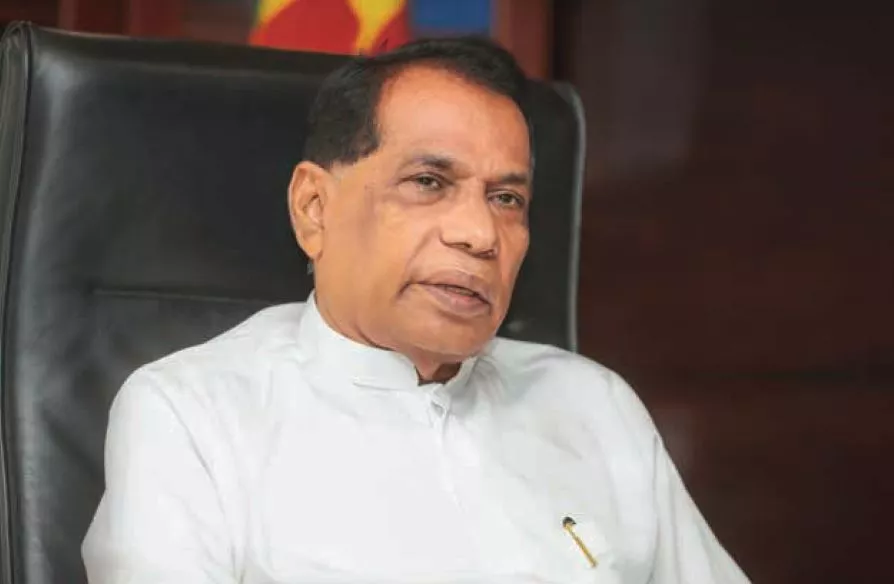
I have been associated with politics for over 50 years with the Rajapaksa family. For a brief period of about ten years I was not actively involved in politics as I was employed in the NGO sector, otherwise, the rest of my active life in politics has been spent with the Rajapaksa family.
Have things changed over the years?
The structure of politics is far better today. For instance, recruitments by the Provincial Councils is being conducted in a fair manner, whereas few decades ago it was completely politicized and people were hired for jobs through political connections; today though graduates enter the workforce through a competitive process by sitting for an examination. There isn’t much political interference in recruitments today. As mentioned few decades ago, people were dependent on politicians for all their needs, from jobs to development, but it is no longer the case. This situation was very much changed particularly with the jobs offered to the graduates by H E Mahinda Rajapaksa in 2010 and by H E Gotabaya Rajapaksa in 2020, 50,000 and 60,000 jobs respectively. Also all clerical jobs in the public service is recruited through a competitive exam. This Government completely maintained absolute transparency and not considered any differences such as political affiliations. The little political interference had was over the minor category of public service staff such as office assistants and other similar categories.
However, His Excellency the President with his initiative of offering 100,000 jobs to the public changed even the little political interference in offering public service jobs. These jobs were offered completely on merit and by identifying exactly the deserving people. The main qualification considered was the ability to be employed but unemployed and/or being a Samurdhi family. My view is that the situation has changed drastically. Also, people have the freedom to choose today, because we have a very economically active private sector, which has somewhat reduced the domination of the State sector in economic activities and jobs. My opinion is that the Government must be involved in infrastructure development projects, strengthen and provide security and financial facilities and allow the private sector to do the development work, otherwise Government institutions that may become nonviable overtime may become a burden to the system and go bankrupt.
As you mentioned you have been part of the journey of the Rajapaksa family, through many milestones, and now with the formation of the SLPP and its victory. Can you tell us about that experience?
The formation of the SLPP was an incredible way of coming out of the defeat. The SLPP was totally a one-man effort, ably supported by Hon Mahinda Rajapaksa and His Excellency Gotabaya Rajapaksa; the entire idea was birthed by Basil Rajapaksa, who established the new party and led to victory within a very short span of time. This is the first time a new party won resoundingly, when in the past, a new party may have won just a few electorates. He has the ideas and the courage and is extremely politically savvy. There’s no one to compare with him in this region. Basil Rajapaksa is the mastermind behind strategic thinking. While
he was Minister of Economic Development, he set up a good network among the local authorities, and he made use of the leaders in these local bodies to create this party. He began with the lowest rungs, which ensured a sound foundation. Even when some senior politicians went against the new party, he ensured that it had a strong base with the support of these lower rungs of leadership. He began by ensuring victory at the local level by winning local Government bodies, which helped solidify a sound foundation for the Presidential Election and the Parliamentary Election.
Before 2005, Prime Minister Mahinda Rajapaksa was often sidelined. But despite that he came to the forefront. What do you think his special character was?
Hon Mahinda Rajapaksa was someone unique because he had the vision, which he didn’t openly pronounce. One day when he was the leader of opposition he called me unexpectedly, at that time I had resigned from the NGO field. When I met Hon Mahinda Rajapaksa he explained that he feels that he can achieve something more; in other words he felt that he had the potential to be the country’s leader. First, he became the Prime Minister, then he was successfully elected as the President. He had a vision according to which he worked. He is able to work with the people and be close to them. He did not separate people according to parties. He’s friendly with all. Take a funeral, no matter the party affiliation, he would be the first to be there. In the 1970s, he built a close acquaintance with the people and people still hold him dear. I don’t think we will find a similar leader in this century or the next. He built his political image from a very young age. When I first met him, he was in his 20s.
I have also learnt many attributes from Hon Mahinda Rajapaksa, which I too use in my daily work at the Southern Provincial Council. He has the ability to make people feel relaxed by saying a joke or two, and to create a more positive atmosphere. I too, do the same.
When you met him and joined politics did you envisage that Prime Minister Mahinda Rajapaksa would reach the top someday?
He had a vision to come out of district politics to national politics. Before 2005, everyone tried to undermine and suppress him, but he had a stronger support from the media and even from other political parties. He’s a rare leader. At that time he was a mature, friendly and thoughtful individual. He supported us in our student struggles despite the risk of losing his job as a librarian. He entered politics in the 1970s and he came into active politics after the death of his father. Madam Sirimavo Bandaranaike invited someone from the family to represent Hon D A Rajapaksa’s seat. She had Hon Chamal Rajapaksa in mind, but the most active was Hon Mahinda Rajapaksa. It was a good decision I believe, because today the Southern Province has produced two Presidents for the country. I say it’s a good decision because we were redeemed from 30 years of war and experienced tremendous development. There could be criticism, but when we look at the bigger picture of what he has done at the grassroots level and the region, I believe the work has been remarkable and it has a real impact on the people.
What has been your experience working with the current President?
I have worked with His Excellency Gotabaya Rajapaksa for five years, while he was the Secretary of Defense. He has a tough character. I happened to be one of his Additional Secretaries from 2005-2010. He’s methodical, well organized and disciplined and has a strong personality. The Rajapaksa brothers carry different extraordinary skills with them according to their thinking and other backgrounds. Hon Mahinda Rajapaksa and H E Gotabaya Rajapaksa are different. Hon Mahinda Rajapaksa is a humanitarian with excellent public relarions. H E Gotabaya Rajapaksa is a technocrat. My view is that generally he goes into very detail of whatever he does and seeks perfection in everything. He doesn’t come out to discuss too much and is not pursuing popularity. One example I could mention is the Ipalogama housing complex in Anuradhapura district that he built. This project was totally entrusted to me by him to construct 1,506 houses for war heroes. This project was a complete project with all the facilities. Another project he entrusted to me was the “Api Wenuwen Api” social service and welfare fund for the “Ranaviru” (Armed Forces). For this fund, one billion rupees was raised under his guidance and the fund was used to build houses for the service personel who had land without houses. This project was managed by the present First Lady Mrs Ioma Rajapaksa, then as the chairperson of the Ranaviru Seva Vanitha unit. Such experience has given me a greater understanding to work under him in the present Government.
He used the popularity and the family base to come to power. Of course he had his own support base, such as the Viyathmaga professionals, who wanted to support the political process. There were around 5,000 professionals who were politically very neutral, that were awakened and joined with H E Gotabaya Rajapaksa in his journey to become President.
Despite such close involvement in politics why have you stayed away from the limelight?
I did my part, which I am satisfied with. From 2005, I have been entrusted with many responsibilities time to time, which I have done to the best of my ability and ensured satisfaction of the then Government. I had a passion to contribute to the national economy by converting the loss making public enterprises as profitable ventures. As Secretary to the Ministry of State Resources and Enterprise Development, I was able to turnaround few key state institutions such as the Mineral Sand Corporation, Ceramic Corporation, Lanka Phosphate, and Laksala; while resolving many inherent problems of the institutions that came under the Ministry’s purview. I am satisfied with my efforts.
I have had the desire to be part of the national policy making process as a Member of Parliament, which did not happen, but I can still share my ideas and vision with the current leaders and contribute to the Southern Province to the best of my ability and I am able to get things done. I am linked with senior national-level leaders and able to make an influence on national policy. I believe that is quite sufficient and I am satisfied.
What is the way forward and future plans for the Province?
As you know the Government has decentralized its operations from the Central Government to Provincial Councils and to local Government authorities in order to serve more effectively and efficiently to the citizens in the country. Therefore, the Southern Provincial Council has already planned to develop the local fisheries, agriculture, tourism, education, and health sectors coming under the purview of Provincial Council with priority. In this connection, a substantial amount has already been allocated from the annual budget of the Provincial Council for the development of said areas. The main focus is to develop the rural economy. Furthermore, while developing the rural infrastructure through the local Government authorities and the Provincial Council Ministries, the other public grievances and mainly the poverty elevation programs will be carried out by reaching the villages.
A program has been finalized to have a Governor’s mobile service to cover every rural village in the province. We have also formulated another program to create 20,000 new employment opportunities for those who could directly contribute to the national economy by using their knowledge, skills and entrepreneurship. Further, we have already commenced developing tourist locations coupled with recreational activities such as jogging tracks. Also an extra focus has been given to protect and establish the traditional local industries such as handlooms, wood carving, coir, and crocheting. Therefore, all in all, for year 2021 we are well planned, prepared, and geared up to work towards achieving the goals set by His Excellency the President through his policy document.



